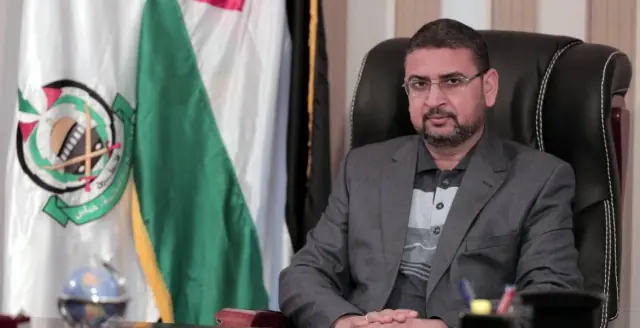In a significant development amidst the prolonged Gaza conflict, Hamas has announced its acceptance of the UN Security Council’s ceasefire resolution. The Palestinian Islamist movement has expressed readiness to negotiate the details of the resolution, marking a potential turning point in the ongoing hostilities.
This announcement was made by Sami Abu Zuhri, a senior representative of Hamas, in a statement to Reuters.
Hamas’s acceptance of the resolution includes critical elements such as the cessation of hostilities, the withdrawal of Israeli troops from the Gaza Strip, and the exchange of hostages for prisoners held by Israel.
“Hamas accepts the UN Security Council resolution on the ceasefire plan, the withdrawal of Israeli troops, and the exchange of hostages for prisoners held by Israel,” said Zuhri. This position underscores Hamas’s willingness to engage in diplomatic negotiations to bring an end to the violence.
However, the success of this ceasefire is contingent upon the actions of the international community, particularly the United States. Zuhri emphasized the pivotal role of the US in this process, stating, “The US administration faces a real test to fulfill its commitments by forcing the occupying forces to immediately end the war in compliance with the UN Security Council resolution.”
This appeal to Washington highlights the necessity for diplomatic pressure to ensure that Israel adheres to the terms of the ceasefire.
The acceptance of the ceasefire resolution by Hamas is a significant step towards peace, reflecting the efforts of the international community to mediate and resolve the conflict.
The UN Security Council’s resolution aims to halt the cycle of violence and pave the way for a lasting peace agreement. The resolution’s provisions are designed to address both immediate and long-term issues, including the cessation of military actions, withdrawal of troops, and humanitarian considerations.
The call for the exchange of hostages and prisoners is particularly noteworthy. This aspect of the resolution seeks to address one of the core humanitarian issues in the conflict, aiming to provide relief to families and reduce tensions.
The successful implementation of this exchange could build trust between the parties and serve as a foundation for further negotiations.
The role of the United States in enforcing the ceasefire cannot be overstated. As a key ally of Israel and a major player in international diplomacy, the US has the influence to ensure compliance with the UN resolution.
The international community will be watching closely to see how the US administration navigates this challenge and whether it can effectively leverage its diplomatic clout to bring about an end to the hostilities.
This development comes at a time when the Gaza conflict has caused significant humanitarian distress, with numerous casualties and widespread destruction. The acceptance of the ceasefire resolution by Hamas offers a glimmer of hope for a resolution to the conflict.
However, the path forward will require sustained diplomatic efforts and a commitment from all parties to adhere to the agreed terms. In summary, Hamas’s acceptance of the UN Security Council’s ceasefire resolution represents a crucial step toward peace in the Gaza Strip.
The onus now lies on the United States and the broader international community to ensure that the terms of the ceasefire are respected and implemented, providing a potential pathway to ending the violence and achieving a lasting peace.
This article was created using automation technology and was thoroughly edited and fact-checked by one of our editorial staff members

